Broken shifter spoils Sagan's chances at Paris-Roubaix
Tinkov looks to Julich for answers on Sagan's form
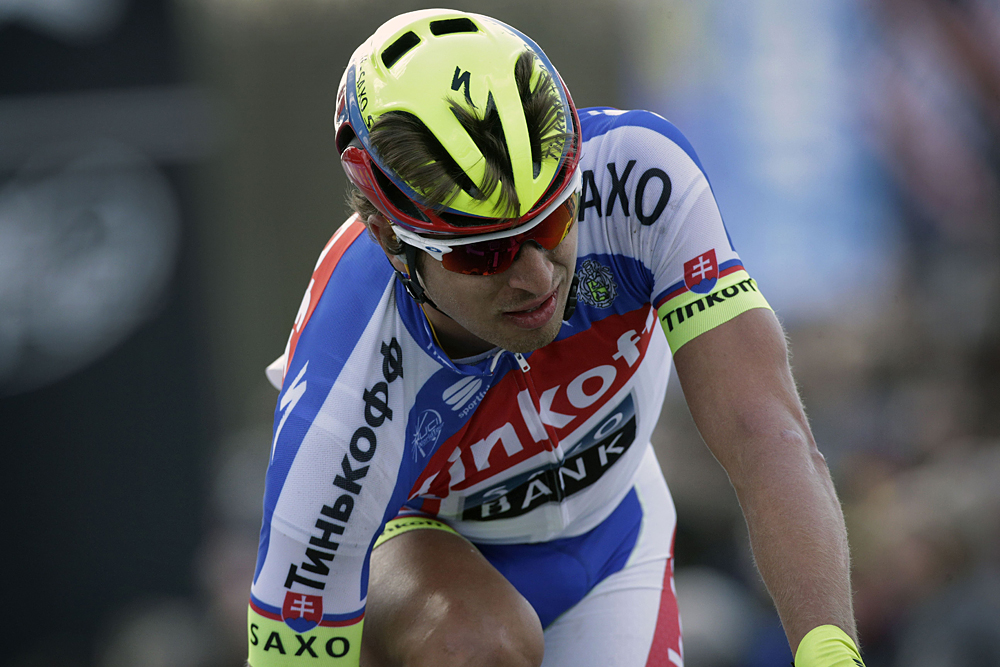
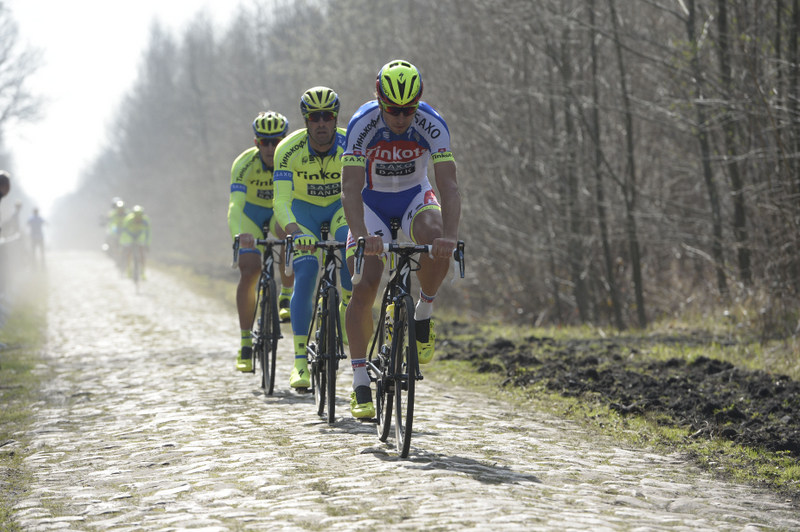
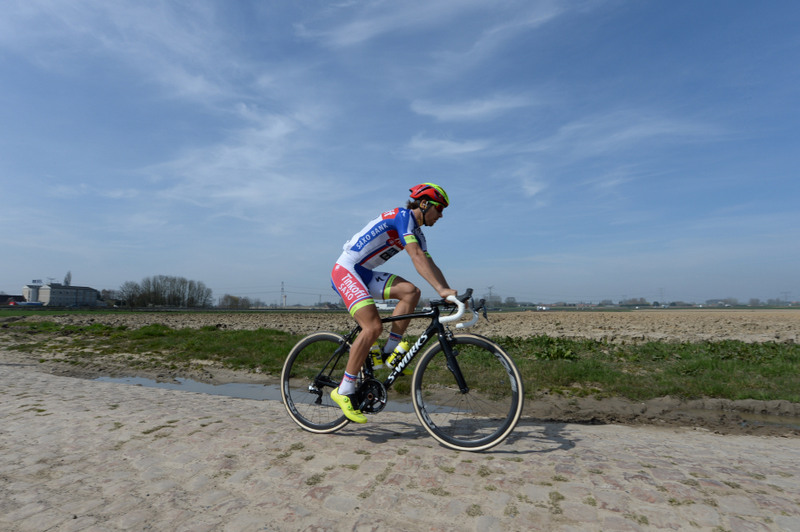
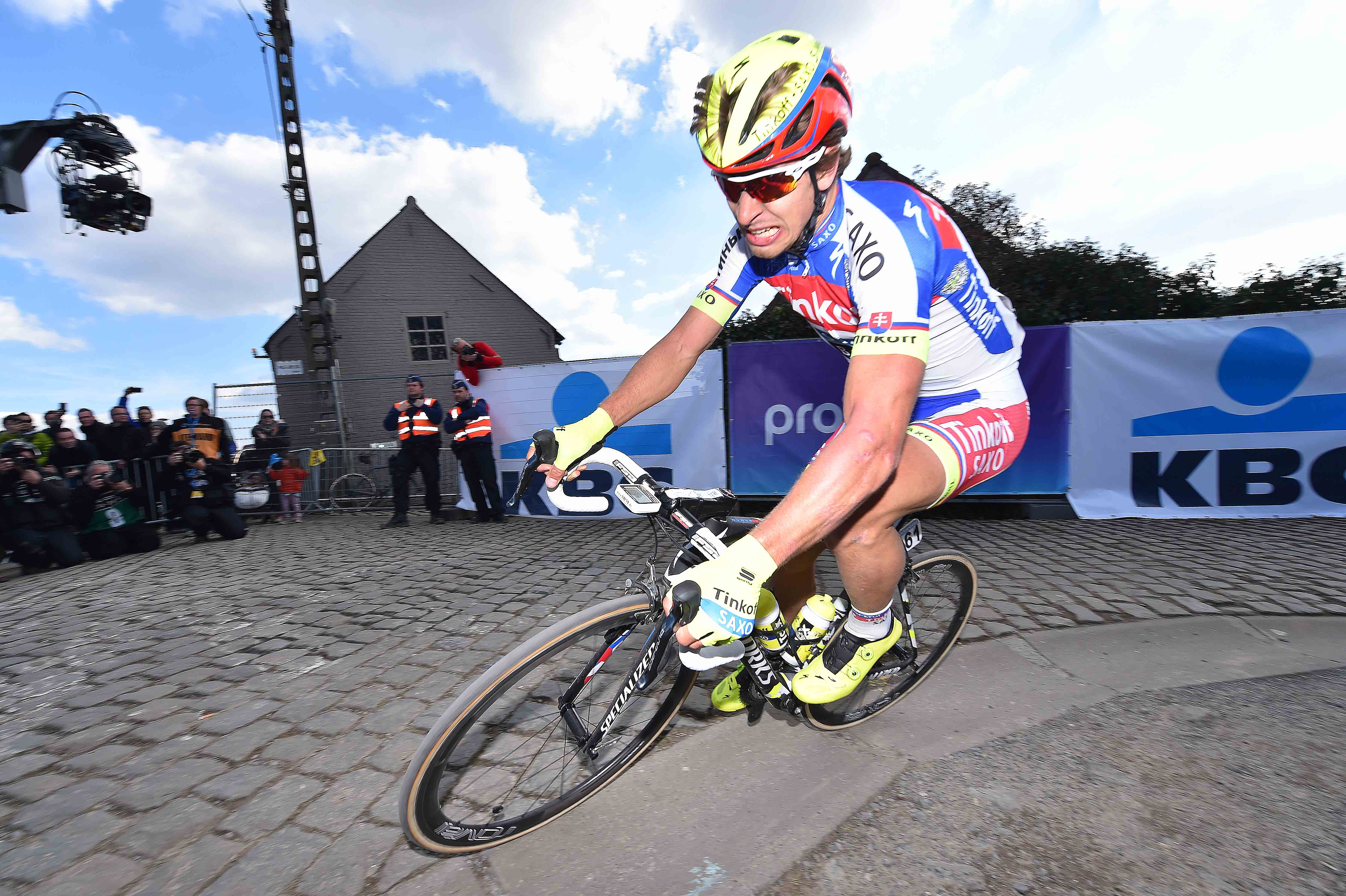
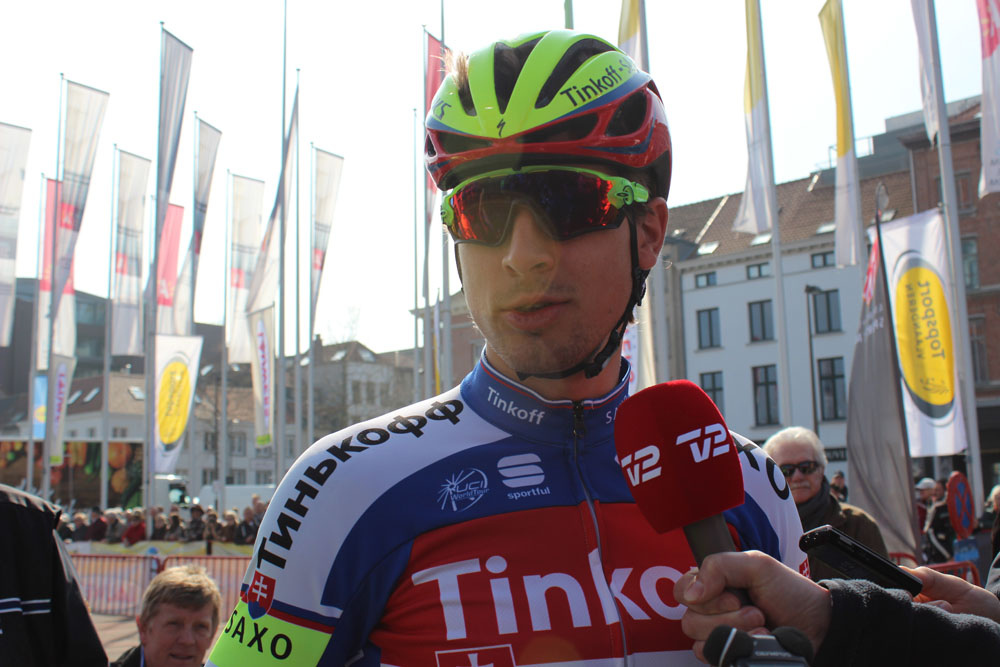
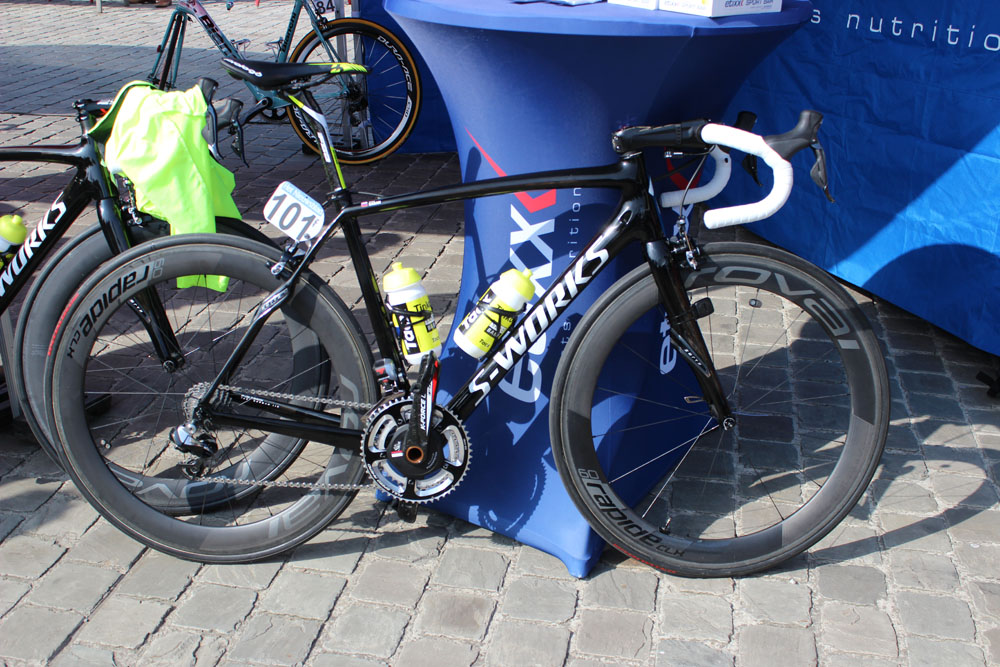
Another race and another disappointment for Peter Sagan (Tinkoff-Saxo) in 2015, however, at Paris-Roubaix it was his equipment that let him down and not his legs. While Greg Van Avermaet and Yves Lampaert were up the road, Sagan was in the main group of contenders with five kilometres to go when a broken shifter forced him to change his bike. His frustration was evident when he threw his bike, bidons and all, onto a grassy bank. The bike change was quick but it was too late for the Slovakian to cover the next wave of attacks and he was left fighting for the minor positions.
"Today I was missing the luck," he told Cyclingnews with a wry smile after a quick chat with his father, who had been waiting with all the fans outside the bus. "I am disappointed because I was on the front and then in the last 10 kilometres I had a problem with the shifting with the bike and then I had to change the bike, and everybody was gone in the breakaway."
Sagan finished the day in the second main group, 31 seconds down on race winner John Degenkolb, with a number of solo finishers splitting them from the leaders. As others in the group jostled to get something of a result out of the day, Sagan stayed at the back and rolled across the line in 23rd place, left empty by his chase back onto the group. He was reluctant to say what he may have done without the mechanical issue, but he knew that it had robbed him of an opportunity to turn his season around.
"I can’t say because the race could have got away so I don’t know but for sure I was on the front, and I was stopped from fighting for the victory because of a problem with the bike," he said. "Then after the last four kilometres I was pulling to get back into the Wiggins group and then I didn’t have any more legs."
Sagan has had a disappointing classics period by his own standards. His two fourth places at Milan-San Remo and the Tour of Flanders were by far his best performances but they were matched by some poor results in the intervening races.
"For sure everybody was expecting more but this is the sport and racing, and what can you do?" Sagan shrugged. "Every race is different and one time it is good and one time it is not, that is it."
"Something needs to change," says Tinkov
Get The Leadout Newsletter
The latest race content, interviews, features, reviews and expert buying guides, direct to your inbox!
Immediately following the race, Sagan sat with team owner Oleg Tinkov on the Tinkoff-Saxo bus dissecting his year so far. It was clear that the team wanted more than the two victories he’s given them so far this year. After talking to his star rider, Tinkov tried to remain pragmatic about the situation.
"Maybe, he was good and he attacked but in the end he had a mechanical problem and shit happens," Tinkov said to Cyclingnews. "Of course we want him to win one or two classics, which he didn’t, so I am not super happy. We’ll see at the end of the season, it’s too early to say after three months but the classics campaign didn’t go well for him."
Ahead of Paris-Roubaix, it seemed as if the pressure was weighing heavy on Sagan’s young shoulders. Perhaps it was too much expectation to place on one rider, but his team boss thinks otherwise. "There is never enough pressure, because they are professional cyclists," said the Russian
"I don’t accept this bullshit when people talk about pressure it is absolutely ridiculous. They’re in the business to be under pressure, they are professional bike riders and they have to be under pressure by default, that’s the sport. If they cannot handle the pressure then they must be in a different job."
Sagan will now take a short break before racing at the Tour of California, which begins on May 10 before the Tour de Suisse, his final race ahead of the Tour de France. California has been a happy hunting ground for the Slovakian champion with a record 11 stage wins at the race. The team will be hoping that Sagan can find his mojo again, but they need to establish what went wrong during the Classics if they hope to move forward in the coming races.
"It’s hard to say, that’s what we were discussing now. He doesn’t know and I don’t know. We have coaches and that’s up to them to decide what’s wrong. Bobby Julich, I think it’s his responsibility or his fault, and it’s up to him to sort the problem," Tinkov said when asked what they needed to do.
"We will see. It’s a sport, you never know. I hope that he will learn from this. I don’t know, he should probably be training or something like this."
Born in Ireland to a cycling family and later moved to the Isle of Man, so there was no surprise when I got into the sport. Studied sports journalism at university before going on to do a Masters in sports broadcast. After university I spent three months interning at Eurosport, where I covered the Tour de France. In 2012 I started at Procycling Magazine, before becoming the deputy editor of Procycling Week. I then joined Cyclingnews, in December 2013.